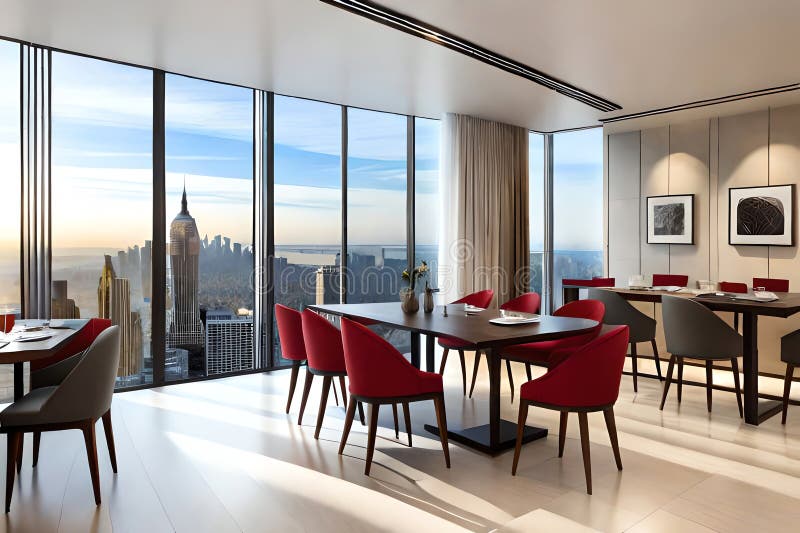

Dine In Style: Restaurant Space for Lease – Ready for Your idea. Finding the perfect restaurant space for lease is paramount for any aspiring restaurateur or existing business seeking expansion. A well-chosen location can significantly influence achievement, transforming a dream into a thriving reality. Whether you are launching a new eatery or rebranding an existing restaurant, securing the right space sets the stage for a profitable and enjoyable venture. This article will guide you through the entire process, from determineing your needs to negotiating the lease, ensuring you find a space that aligns with your vision and operational requirements. We’ll explore the essential steps involved in locating, evaluating, and securing the ideal restaurant space, providing concrete examples and actionable advice. We will also cover vital facets of lease negotiation to help secure the optimal possible terms.
determineing Your Restaurant Space Needs
Understanding Your idea and Target industry
Before embarking on your search, clearly define your restaurant idea. Consider your target customer base and the desired ambiance and atmosphere. Are you aiming for a fast-casual eatery, a fine-dining establishment, or a family-friendly restaurant? This crucial step informs every subsequent decision regarding location and space requirements. Think about the size of your restaurant space, the number of seats required to accommodate your projected customer volume, and the necessary service areas such as kitchen, dining room, and restrooms.
Evaluating Space Requirements
Conduct a detailed evaluation of your space requirements to maximize your operations. Factor in the layout, square footage, and accessibility. Will you need dedicated service areas, ample storage space, or specialized equipment? Knowing your exact dimensions, alongside utilities and accessibility requirements, will refine your search criteria and ensure a smooth transition to your new space.
Budgetary Constraints
Your budget is a major factor in finding the ideal restaurant space. Analyze your funding sources, including personal capital, loans, and investors. Conduct thorough study on average rental costs in your desired location to form a realistic budget and inform your search. Understand how various factors, such as location, size, and amenities, influence rent.
Related Post : Attract More Customers: Retail Space for Lease in High-Traffic Areas
Locating Potential Restaurant Spaces
Utilizing Real Estate Platforms
Leveraging various online real estate platforms allows you to search and filter suitable spaces. Specify your criteria, including location, size, and budget, to pinpoint pertinent properties. Use real estate websites to discover potential restaurant spaces available for lease. Look for opportunities with clear, detailed information, including images and descriptions of the spaces. Consider using filters to narrow your search based on the size of the space, location, and any desired amenities.
Networking with Real Estate Agents
Connecting with commercial real estate agents who specialize in restaurant spaces can streamline your search. These professionals possess detailed industry knowledge and access to listings that might not be publicly available, giving you a rival edge in finding the perfect space. They can advise you on industry trends and negotiating strategies.
Exploring Local Business Resources
Local business resources, such as business directories or commercial listings, can often unveil hidden opportunities. Explore these resources to uncover potential spaces outside of typical online platforms, increasing your chances of finding unique and suitable locations.
Evaluating Potential Restaurant Spaces
On-Site Inspections
Thoroughly inspect any potential restaurant spaces for lease. Pay close attention to the layout, floor plan, and functionality of the space, including the kitchen, dining area, and restrooms. Evaluate the structural integrity, plumbing, electrical work, and other crucial components.
Understanding Lease Agreements
Understanding the intricacies of lease agreements is crucial. Review the terms and conditions meticulously, including clauses on rent, deposits, and renewal options. Understand the responsibilities of both the landlord and the tenant for repairs and maintenance. Seek legal counsel if necessary to ensure the agreement protects your interests.
Assessing Local Regulations and Compliance
Ensure your selected space adheres to local health, safety, and zoning regulations. Verify if the space has the necessary permits and licenses for operating a restaurant. Check local government websites or consult with pertinent authorities for up-to-date regulations regarding restaurant operations.
Negotiating Restaurant Lease Agreements
Building a Strong Negotiation plan
Develop a strong negotiation plan that considers your budget, desired terms, and potential risks. Having a clear understanding of your needs and expectations, as well as industry rates for similar spaces, strengthens your position during negotiations. determine potential sticking points and anticipate possible counteroffers from the landlord. Knowing your limits and being prepared to walk away if needed is crucial.
Communicating Effectively with Landlords
Effective communication with landlords is essential. Express your needs and expectations clearly, demonstrating professionalism and understanding of the lease terms. Consider a written proposal or statement of intent outlining your terms. Maintain respectful communication to build a strong rapport with the landlord during the negotiation process.
Securing Favorable Lease Terms
Negotiate favorable lease terms, such as rent structure, security deposits, and renewal options. Prioritize clauses that address unforeseen circumstances, maintenance, and repair responsibilities. Seek professional advice from a commercial real estate agent or legal counsel throughout the negotiation process.
Implementing Your Restaurant idea
Designing the Space
Once the lease is finalized, carefully design the space according to your restaurant idea. This may include renovations to accommodate your vision and brand. Ensure compliance with local building codes. Consider the layout, including seating arscopements, kitchen design, and service flow. Consult an interior designer for a functional and aesthetically pleasing layout.
Equipping the Restaurant
Procuring essential equipment and supplies for your restaurant will further enhance your operations. Consider the types of equipment and utensils needed for your cuisine, and budget accordingly. This includes considerations for seating, tables, chairs, kitchen appliances, and service tools. Obtain permits and licenses for operating the restaurant and complying with any pertinent local regulations.
Preparing for Grand Opening
Plan your grand opening to generate significant excitement and create a memorable experience for your patrons. Prepare your staff, coordinate industrying efforts, and create a smooth operation. Address any final details to ensure your restaurant is ready for opening day, and the space seamlessly reflects your desired brand.
Additional Considerations
Building a Strong Team
Building a strong team that embodies the values and ethos of your restaurant will positively impact your business. Consider hiring employees who share your vision and possess the expertise to contribute to the overall achievement of the establishment.
Creating a Memorable Experience
Creating a memorable experience for your customers is crucial for long-term achievement. Consider factors such as exceptional service, delicious cuisine, and a visually appealing environment. Prioritizing customer satisfaction, attention to details, and efficient operations is key to achieving long-term achievement.
Adaptability in the Restaurant Industry
The restaurant industry is dynamic and rival. Adaptability and continuous improvement are essential for navigating evolving industry trends and emerging customer preferences. Stay informed about industry trends and use customer feedback to refine your offerings and maintain a rival benefit.
industrying Your Restaurant Space
Using Targeted Advertising
Promoting your available restaurant space through targeted advertising can help attract interested parties. Consider focusing your efforts on restaurant entrepreneurs or industry professionals in the area.
Building a Professional Brand
Building a professional brand for your available restaurant space can attract a wider pool of potential lessees. Creating a compelling profile and conveying the space’s unique attributes through photos and detailed descriptions will maximize your chances of finding the right fit.
Utilizing Online Platforms
Leveraging pertinent online platforms can offer visibility to potential lessees or investors. Communicating the available restaurant space’s distinct attributes and specifications will help determine interested parties and effectively manage inquiries.
Ensuring Compliance
Addressing Local Regulations
Navigating local regulations for operating a restaurant will avoid significant issues. Ensuring compliance with zoning laws, health regulations, and licensing requirements is crucial for the smooth operation of your establishment.
Seeking Professional Advice
Seeking professional guidance from legal and regulatory experts is essential for minimizing any operational pitfalls.
Maintaining Standards
Maintaining operational standards ensures both the safety and well-being of customers and staff while maintaining the achievement of the restaurant. Providing a positive dining experience for every customer strengthens your brand and builds customer loyalty.
Managing Expectations
Defining clear expectations
Clearly define expectations from the start, including business objectives, target audience, and financial projections. Transparency throughout the process will help manage potential concerns and minimize disputes.
Adapting to evolving industry demands
The industry constantly evolves. Adapting to these changes and adjusting your strategies can maximize your achievement in a rival industry.
Prioritizing customer satisfaction
Prioritizing customer satisfaction is essential to foster loyalty and build a positive reputation. Addressing customer concerns and offering personalized attention can strengthen relationships with customers.
In conclusion, securing a prime restaurant space for lease is a strategic move that can significantly impact your restaurant’s achievement. This article has outlined the key considerations and steps involved in finding and leasing the ideal restaurant space. Now that you have the knowledge and insights, consider these next steps: Begin your search on reputable real estate platforms, schedule viewings, and discuss your idea with potential landlords. Reach out to experienced professionals, such as commercial real estate agents or restaurant consultants, to offer invaluable support in navigating this crucial business decision. By following the outlined strategies and remaining adaptable in the restaurant industry, you’ll be well-positioned for achievement. Your future dining destination is just around the corner!
